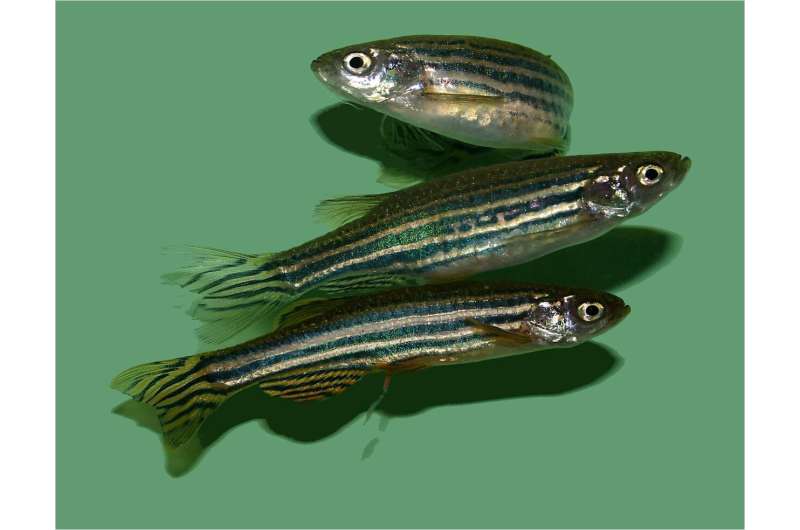Medication in the environment affects feeding behavior of fish

Scientists are increasingly warning that prescription drugs can affect wildlife and ecosystems when they find their way into the environment. In a new Environmental Toxicology and Chemistry study, investigators found that the anxiety and depression drug Escitalopram—at concentrations similar to those measured in the environment—can inhibit fish foraging and eating behavior.
Interestingly, the team noted that the two sexes respond differently to the drug. Specifically, the inhibitory effect of the drug was more pronounced in males than in females.
"It is disturbing that psychoactive drugs affect vital life processes in aquatic wildlife," said corresponding author Erik Baatrup, Ph.D., of Aarhus University, in Denmark.
More information: Sebastian Vedel Nielsen et al, The psychoactive drug escitalopram affects foraging behavior in zebrafish ( Danio rerio ), Environmental Toxicology and Chemistry (2019). DOI: 10.1002/etc.4474
Journal information: Environmental Toxicology and Chemistry
Provided by Wiley




















